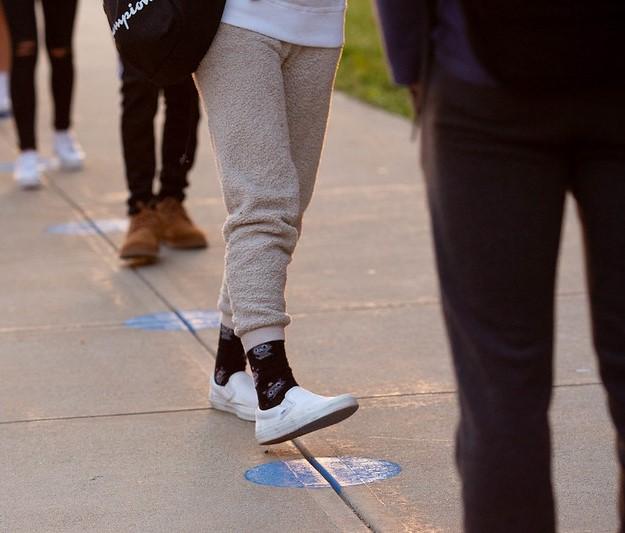Health officials in different parts of the world urged people to double down on their individual actions to curb the spread of COVID-19 to avoid protracted lockdowns and to maintain and improve upon hard-fought gains against the virus.
Europe reports 1 death every 17 seconds
In Europe, though weekly cases have declined slightly, signals of overwhelmed health systems are increasing and deaths have risen by 18%, Hans Henri Kluge, MD, MPH, director of the World Health Organization (WHO) European regional office, said in a statement today. "Last week, Europe registered over 29,000 new COVID-19 deaths. That's 1 person dying every 17 seconds in the European Region from COVID-19," he said.
Lockdowns are avoidable if everyone does their share, and though masks need to be worn in combination with other measures, increasing their use to 95% would help avert more drastic steps, Kluge said, adding that mask-use rates are currently at 60% or lower.
Spikes in North America, Brazil, Uruguay
In the Americas, the world's other main hot spot region, Jarbas Barbosa, MD, PhD, MPH, assistant director of the Pan American Health Organization (PAHO), said during a briefing yesterday that recent news about vaccines is encouraging, but they are still months away, and measures to reduce transmission—such as wearing masks and taking distancing steps—must continue.
He said the Americas region has reported nearly 1.5 million cases over the past week, and that North American countries are the significant drivers of new infections. Hurricanes Eta and Iota have affected the pandemic response in Central America, and Brazil is seeing cases and deaths rise in some of its states, Barbosa said, adding that Uruguay is experiencing some spikes in cases near its border with Brazil.
Regarding vaccines, he said it will take an estimated $2 billion to vaccinate 20% of the population in Latin America and the Caribbean.
Cases on the rise in several African countries
In Africa, nearly 20 countries are experiencing upticks in cases, a trend that's been underway since early October, the WHO's African regional office said today in an update. Unlike the spring spike, which was led by hot spots in South Africa, the latest activity is fueled by activity in the North African region, where temperatures are cooling. Officials said reports of health worker infections are also rising, especially in more experienced ones.
Matshidiso Moeti, MBBS, director of the WHO's African regional office, said large group gatherings and mobility are risk factors for increasing the spread of the virus, especially as the holiday season approaches.
She said new clusters can emerge in previously unaffected places. "But we can lower the risks by wearing masks, limiting the numbers of people who come together, observing physical distancing and practicing good hand hygiene," Moeti said. "We can celebrate yet do so safely."
Japan's cases surge, Samoa reports first case
Japan's cases topped 2,000 today for the first time, and the country's Prime Minister Yoshihide Suga said the country is at "maximum alert," the New York Times reported. He urged people to double down on mask wearing and said he's meeting with an expert group this week to discuss new measures to slow the spread of the virus.
Tokyo reported more than 500 new cases, and city officials raised the alert to its highest level, which doesn't trigger new restrictions but signals that residents should exercise heightened caution.
Elsewhere, Samoa reported its first known case, a sailor who returned from Auckland, New Zealand, and was in a quarantine facility, Radio New Zealand reported.
In other global developments:
- Russia reported another single-day record case number and passed the 2 million case mark, CNN reported. Its neighbor Ukraine also reported another record daily high, according to Reuters.
- Danish officials said no other variant SARS-CoV-2 cases have been found in mink, suggesting that it might have become extinct, CNN reported. Mink in seven cities were culled to curb the spread of a mutated strain that was found in some people.
- A phase 2 trial published in The Lancet today suggests that the chimpanzee adenovirus-vectored COVID-19 vaccine from Oxford University and Astra Zeneca triggered a robust immune response in healthy adults ages 56 to 69 and in those older than 70, according to a university press release. No serious events were seen. Phase 3 trials are under way, with results expected in the coming weeks.
- Nearly 1 million people in China have been immunized with a vaccine developed by state-owned Sinopharm on an emergency use basis, even though it hasn't been through phase 3 trials, the South China Morning Post reported.
- The global total today climbed to 56,665,118 cases, and 1,356,049 people have died from their infections, according to the Johns Hopkins online tracker.





















